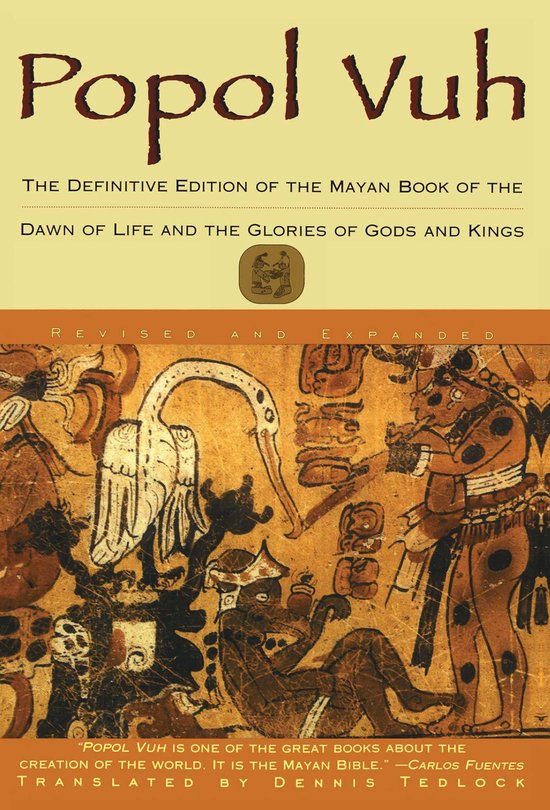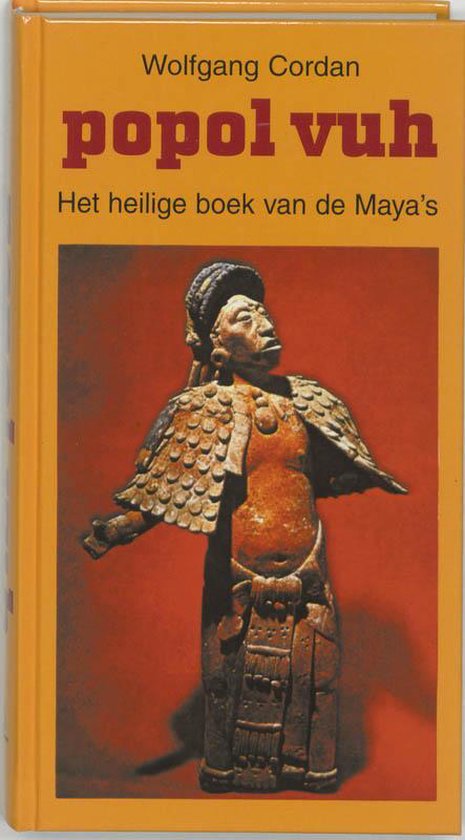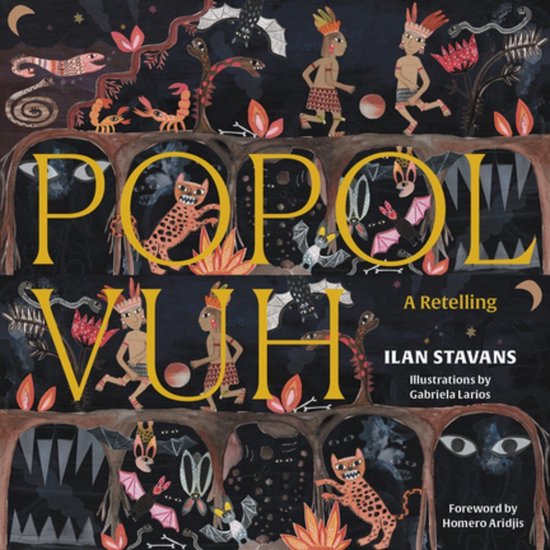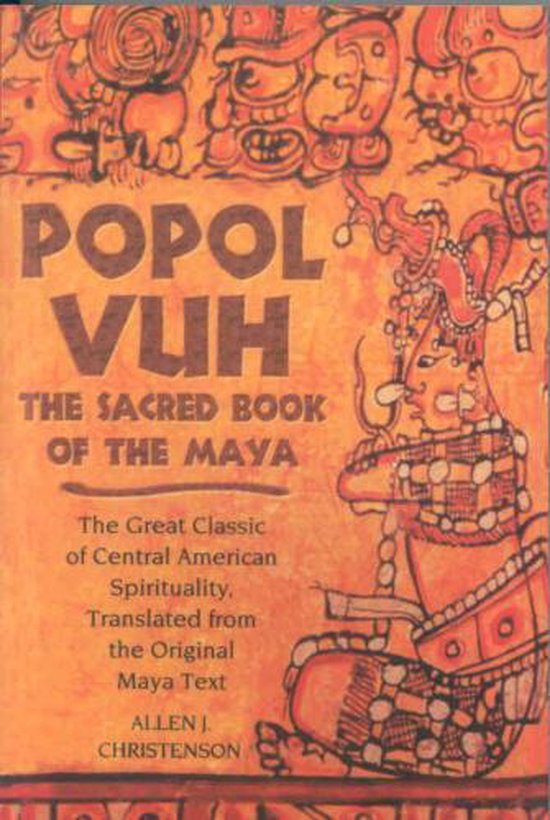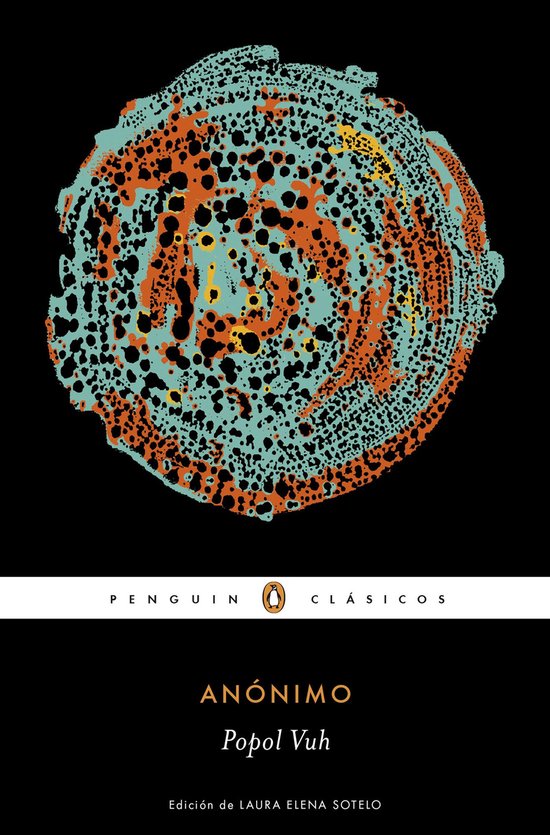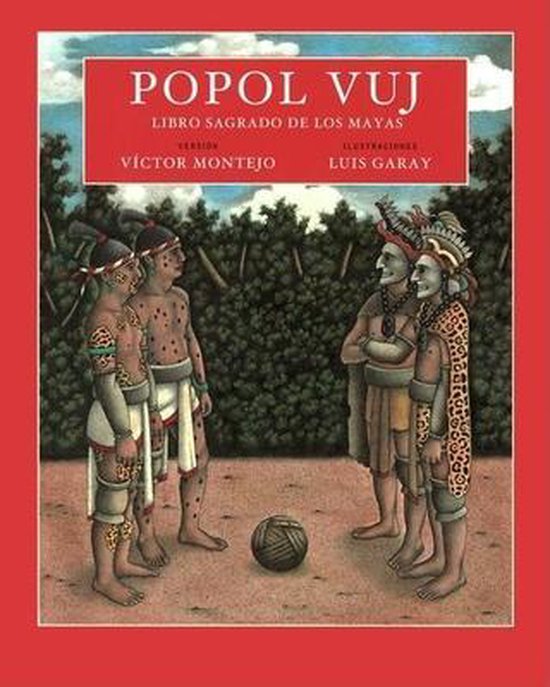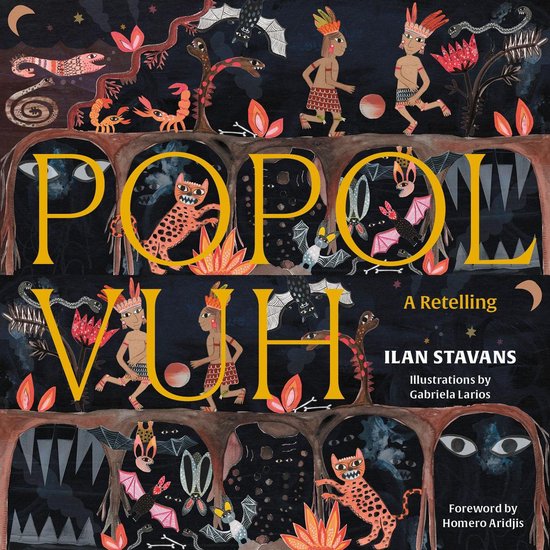
Popol Vuh
An inspired and urgent prose retelling of the Maya myth of creation by acclaimed Latin American author and scholar Ilan Stavans, gorgeously illustrated by Salvadoran folk artist Gabriela Larios and introduced by renowned author, diplomat, and environmental activist Homero Aridjis.
The archetypal creation story of Latin America, the Popol Vuh began as a Maya oral tradition millennia ago. In the mid-sixteenth century, as indigenous cultures across the continent were being threatened with destruction by European conquest and Christianity, it was written down in verse by members of the K’iche’ nobility in what is today Guatemala. In 1701, that text was translated into Spanish by a Dominican friar and ethnographer before vanishing mysteriously.
Cosmic in scope and yet intimately human, the Popol Vuh offers invaluable insight into the Maya way of life before being decimated by colonization—their code of ethics, their views on death and the afterlife, and their devotion to passion, courage, and the natural world. It tells the story of how the world was created in a series of rehearsals that included wooden dummies, demi-gods, and eventually humans. It describes the underworld, Xibalba—a place as harrowing as Dante’s hell—and relates the legend of the ultimate king, who, in the face of tragedy, became a spirit that accompanies his people in their struggle for survival.
Popol Vuh: A Retelling is a one-of-a-kind prose rendition of this sacred text that is as seminal as the Bible and the Qur’an, the Ramayana and the Odyssey. Award-winning scholar of Latin American literature Ilan Stavans brings a fresh creative energy to the Popol Vuh, giving a new generation of readers the opportunity to connect with this timeless story and with the plight of the indigenous people of the Americas.
Praise for Popol Vuh: A Retelling
“Salvadoran illustrator Larios provides lush images to accompany stories of the Earth and the underworld, Xibalba, and the animals and gods that inhabit them…. A beautiful interpretation of pivotal Central American history told through contemporary illustration and language.”
—Kirkus Reviews
“Gripping and redolent from start to finish… Stavans’s style is both colloquial and subtly elevated. The same is true of Larios’s splendid illustrations, which would be worth the purchase price on their own…. Stavans and Larios have together done a service to… the English-speaking world by re-fashioning this rich and fascinating myth into an accessible and beautiful English-language volume to treasure.”
—Blogcritics
“The Popol Vuh is widely considered the Maya Bible, transmitted through three millennia, and in this exquisitely illustrated volume, Latin American literature scholar Stavans reimagines what is also known as the Mayan K’iche’ people’s text of creation. A roster of characters—the deities, lords, idols, white men, and K’iche’ people, as well as the animals, such as jaguar, vampire bat, centipede, and coyote in the book’s frontispiece—are helpful markers through this mystical, mythical landscape.”
—The National Book Review
“In these pages you will find an adroit retelling of a complex and often confusing tale with a vast and bewildering cast of characters. Approaching the Popol Vuh with a fresh eye and the necessary erudition, Ilan Stavans, the distinguished scholar of Hispanic culture, nimbly conveys the content and the sense of the original, retaining its magic and fascination, while rendering it more accessible to a wider readership. Popol Vuh: A Retelling artfully presents the case for the centrality of this magisterial story to the cultural consciousness of the Americas and for the urgency of its message.”
—Homero Aridjis, from the foreword
"At a time when so many of us ask ourselves about the end of the world as we know it, few books could be more relevant than this sacred text of the Maya. In a mesmerizing, illuminating new translation, Ilan Stavans brings to contemporary readers this lyrical epic, with its messages from a lost civilization obsessed, as ours should be, with the inevitable cycles of catastrophe and change. The Popol Vuh encourages us to contemplate the perpetual conflict between truth and falsehood, light and darkness, so that we may find the wisdom to emerge as better people."
—Ariel Dorfman, author of Death and the Maiden
"Popol Vuh is one of the seminal foundational 'texts' of the Americas before it became 'America'—and one so few of us really know much about. Again, Ilan Stavans is infusing the US of A with the cultures and stories that have been traditionally erased or ignored and forgotten. All I can say is, another amazing Stavans project!"
—Julia Alvarez
"The Popol Vuh is the great book of creation of the Maya K'iche' culture, and Ilan Stavans has embarked on an intrepid adventure of recreation; he returns to a myth of origin to endow it with vibrant topicality, proving that rewriting a legend is a way of bewitching time."
—Juan Villoro, author of God Is Round
“Many translators, scholars, and poets have brought us close to the radiant eminence of our Mayan origin story, the Popol Vuh. None touch its wondrous dynamism and epic elegance like Stavans and Larios. Free of the formal constraints of the K’iche’ original, Stavans’s delivers a masterful retelling that invites us into chimeric dreams: from the mischievous first peoples and the quests of those grown from seeds, to hybrid creatures and demi-god twins with battles lost and won. Larios’s dexterous admixture of cool washes and vibrant color palettes along with a K’iche’-inspired line-work aesthetic, further unzip our minds to a shared ancestral imaginary. Only my Guatemalan abuelita could cast such storytelling spells over me. Together, Stavans and Larios invite us all to dance as the children we once were and will become. A gift!”
—Frederick Luis Aldama, author of Long Stories Cut Short: Fiction from the Borderlands
“Ilan Stavans's retelling of this ancient and sacred story of the Mayan people is as exquisitely written as it is necessary.”
—Eduardo Halfon, author of Mourning
About the Author
Ilan Stavans is Lewis-Sebring Professor of Humanities, Latin America and Latino Culture and the publisher of Restless Books. He has translated Lazarillo de Tormes, Sor Juana Inés de la Cruz, Jorge Luis Borges, Pablo Neruda, Mariano Azuela, and Juan Rulfo into English, Emily Dickinson and Elizabeth Bishop into Spanish, Yehuda Halevi and Yehuda Amichai from Hebrew, Isaac Bashevis Singer from Yiddish, and Shakespeare, Cervantes, and The Little Prince into Spanglish. His books include On Borrowed Words, Dictionary Days, Quixote, On Self-Translation, and The Wall. He edited the Oxford Book of Jewish Stories, the Norton Anthology of Latino Literature, and Becoming Americans: Four Centuries of Immigrant Writing. The recipient of numerous awards and honors, his work, rendered into twenty languages, has been adapted to film, TV, radio, and theater.
About the Introducer
Internationally renowned poet, novelist, diplomat, and environmental activist Homero Aridjis is the author of Eyes to See Otherwise, 1492: The Life and Times of Juan Cabezón of Castille and The Angel Speaks, among many other books. He has been president of PEN International and Mexico's ambassador to UNESCO. He has championed an appreciation of indigenous cultures as well as environmental awareness worldwide.
About the Illustrator
London based Salvadoran artist and illustrator Gabriela Larios received her Master of Arts from Camberwell College of Arts, UK in 2007 thanks to an Alban Scholarship. She creates whimsical and colourful collage illustrations that celebrate her deep love of children’s books, textiles and folk art. Her creative world derives from her interest in storytelling and the natural world. There is a naive and playful spirit captured in her work and a strong connection between memories of her childhood in El Salvador and her body of work: tortoises, fish, plants, birds and all the colourful creatures and elements found in her art. Her work has been exhibited in London, Europe and abroad and has appeared in various international books and magazines.
| Auteur | | Ilan Stavans |
| Taal | | Engels |
| Type | | E-book |
| Categorie | | Literatuur & Romans |
